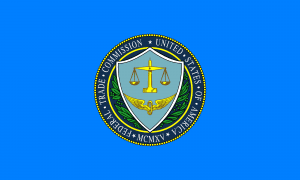Federal Trade Commission v. Precision Patient Outcomes, Inc. and Margrett Lewis is the case.
Washington, DC – The New Civil Liberties Alliance, a nonpartisan, nonprofit civil rights group, has filed a Motion to Dismiss the Federal Trade Commission’s (FTC) lawsuit against Precision Patient Outcomes, Inc. (PPO), a California-based company which, among other things, develops dietary supplements, and its CEO, Margrett Lewis. NCLA argues FTC cannot rightfully exercise executive power by initiating and prosecuting this lawsuit, especially considering the Justice Department refused to bring this case. Congress cannot empower FTC Commissioners to file lawsuits while shielding them from at-will removal by the President.
In 2021, PPO developed a supplement called “Covid Resist.” Prior to selling any to consumers, CEO Lewis asked FTC if there were any problems with the product’s name and proposed marketing. FTC responded with a letter that refused to answer her question, but did provide hundreds of pages for her to pore over of companies that the agency had sued or to which it had issued warning letters. On its own initiative, and before any product was sold, PPO abandoned the trademark and changed the product’s name to remove any mention of “Covid.” FTC’s initial Complaint accused PPO and Ms. Lewis of illegally selling Covid Resist. After NCLA’s lawyers reminded FTC why this was impossible, the agency filed an Amended Complaint removing this falsehood. No Covid Resist was sold, nor does the Amended Complaint allege that it was, so FTC cannot maintain a suit on such a claim.
FTC has no particular competence in what dietary supplements can and cannot do. The agency does not have dieticians or even medical professionals on staff. None of the statutes relied upon by FTC say anything about dietary supplements, and FTC has issued no regulations on dietary supplements. In fact, Congress has explicitly charged another agency, the Food and Drug Administration, with setting the standard of what can and cannot be said about dietary supplements in a statute over which FTC has no jurisdiction.
When the Supreme Court decided Humphrey’s Executor in 1935, FTC did not possess the power to initiate suits or seek penalties. These core executive powers were only added to FTC’s authority in the 1970s. The Supreme Court itself has recognized that its 1935 “conclusion that the FTC did not exercise executive power has not withstood the test of time.” Article II vests executive power in the President, who must “take Care that the Laws be faithfully executed.” The President cannot effectively fulfill that duty when Congress restricts his removal power over the federal officials under his command. The FTC v. PPO case thus provides the federal courts an opportunity to apply Humphrey’s Executor to prevent FTC’s unconstitutional exercise of executive authority.

NCLA released the following statements:“FTC is claiming suzerainty over ever larger swaths of the American economy based on vague language and old court cases that diverge sharply from modern judicial thinking on the separation of powers. This ill-chosen strike against a small businesswoman trying to provide high-quality vitamins should soon lead to curtailing FTC’s ability to exercise executive power unaccountable to the President.” — John J. Vecchione, Senior Litigation Counsel, NCLA
“Inspired by her family’s personal experience, Ms. Lewis is a tireless consumer and burn survivor advocate, yet FTC is punishing our clients for trying to do the right thing. They sought FTC’s advance input. FTC declined to provide it. At great cost, they then voluntarily changed the product’s name and labeling. FTC didn’t care. They stopped selling the product under the new name. FTC filed this case anyway. NCLA’s clients tried to comply with FTC’s edicts at every turn, but it was never enough. Now we’ll just have to beat FTC at its own game.” — Kara Rollins, Litigation Counsel, NCLA
For more information visit the case page here.
ABOUT NCLA
NCLA is a nonpartisan, nonprofit civil rights group founded by prominent legal scholar Philip Hamburger to protect constitutional freedoms from violations by the Administrative State. NCLA’s public-interest litigation and other pro bono advocacy strive to tame the unlawful power of state and federal agencies and to foster a new civil liberties movement that will help restore Americans’ fundamental rights.


Join the conversation!